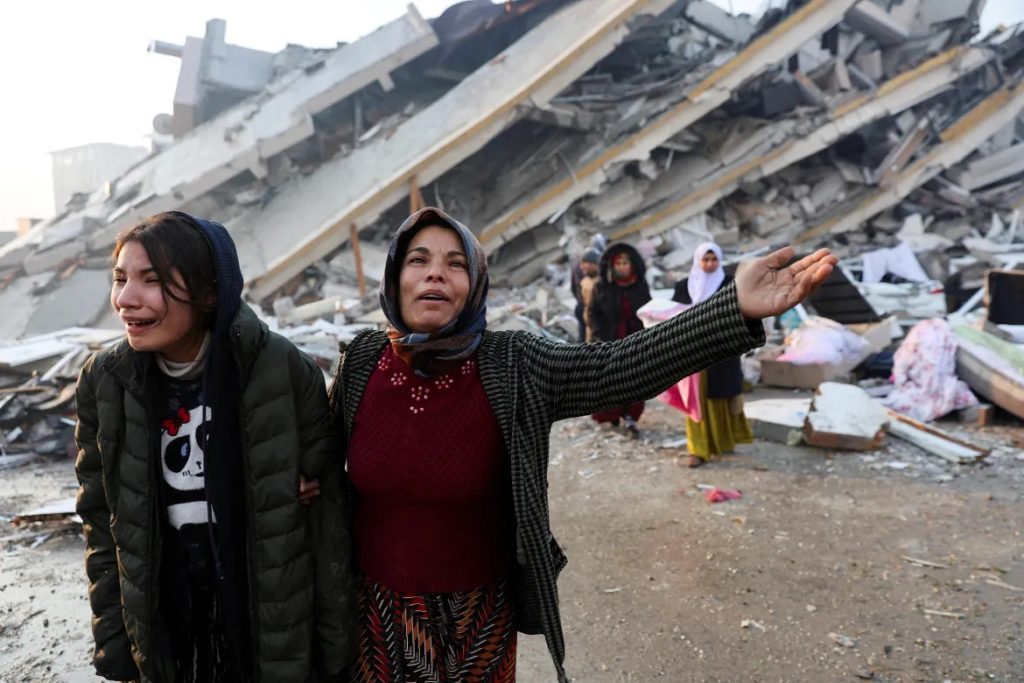Mental health professionals say that women in Syria were already traumatized, but the recent earthquake has taken an additional psychological toll. Women, especially those with young children, feel abandoned by the international community. “When the earthquake came, they were already broken.”

Nearly 3 million people were impacted by the earthquake in northwest Syria. Over 300,000 people are now displaced and at least 11,000 families are now homeless.
Syria has been at war for more than a decade, thousands of people are displaced, poverty levels continue to rise and public infrastructure is falling apart. Syrian women in particular are suffering from a mental health crisis, facing serious trauma marked by years of war, destruction and despair and this has been exacerbated by the latest earthquakes.
After the earthquake, Amel Lakhdari, the founder of the Middle East North Africa (MENA) Women’s Coalition, a group of women-led grassroots organizations, began pairing therapists, counselors and psychotherapists from around the world with women in Syria.
Most of the women she has worked with are clinically traumatized, depressed or anxious, said Lakhdari. Even before the latest tragedy, suicide rates in the region were on the rise, according to 2021 data from the International Rescue Committee.
Dahane Saliha, a clinical psychologist based in Algeria and one of the many practitioners treating Syrian women remotely through the MENA Women’s Coalition, said two of the women she is working with are the main breadwinners of their families and are in charge of taking care of young children. Both the women and their children suffered from PTSD symptoms, including night terrors and bedwetting. “They are living a life of no security, no stability, and they lost a lot,” Saliha said. “When the earthquake came, they were already broken.”
Syrian women feel abandoned
Lakhdari said women, especially those with young children, have felt abandoned by the international community.
Immediately after the earthquake, aid groups struggled to swiftly access the impacted regions. In Turkey, fuel shortages, a lack of trained rescue teams and political bureaucracy delayed crucial life-saving resources. The situation was worse in Syria, as nonprofits navigated donor fatigue and government permissions to travel through dangerous borders, and faced the risk of airstrikes.
“You just see the sadness and almost like a hopelessness in their eyes,” said Sophia Banu, a psychiatrist from Dallas, Texas, who went to Syria and Turkey on a humanitarian mission with MedGlobal, a humanitarian nonprofit that provides emergency response in disaster regions.
“Although they’ve been through crisis after crisis for 12 years, this is different,” said Dania Albaba, a Syrian-American from Houston and a third-year psychiatry resident at Baylor College of Medicine. “People think of Syria as a place that is constantly ravaged by crisis and disaster and displacement of people. But this has really affected people psychologically in a very different way.”
The earthquake will only make it more challenging to recover from the decades of isolation and war.
“The trauma here is ongoing. It hasn’t ended,” Albaba said. “All these little tremors and minor earthquakes are still affecting the children and are still affecting women. They just don’t feel comfortable. They feel like they’re reliving the same experience over and over and over again.”
Source: Huffington Post

